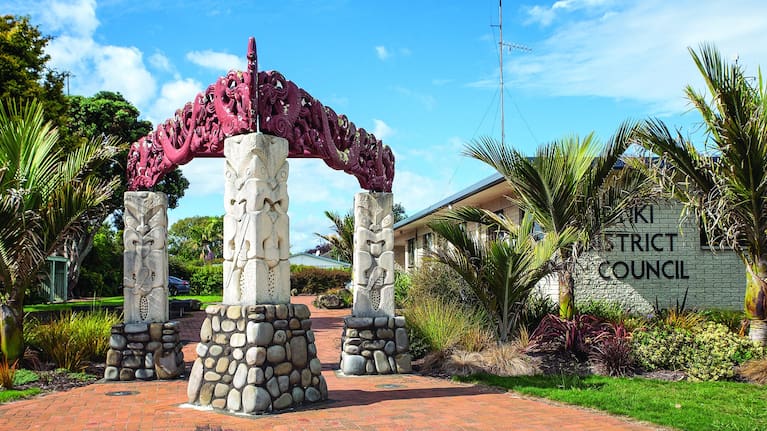Ōpōtiki District Council has whittled a proposed rates increase of 34% down to 10.5%, but it's still not low enough for some councillors.
Council trimmed back the rise by two-thirds after looking at ways to reduce costs, including cutting library hours, event funding and the level of service for parks and reserves.
At its first public meeting of 2024 yesterday, the council endorsed a report from chief executive Stace Lewer on the draft budget for the its Long-term Plan 2024-2034.
The report summed up the workshops held since councillors were first presented with the 34% increase in November.
Five factors made up the increase: financing capital works accounted for 3%; operational expenditure 8%; deferred revaluations 5%; harbour and wharf costs 8%; and depreciation funding of assets 10%.
By their January 30 workshop, staff presented council with a rating impact of 13%, with no change of operating expenditure.
This was done by delaying the cost of harbour operations, reducing revaluation and depreciation and pulling back on capital works.
"Council's direction from that point was to go out to consultation with a rating requirement of 13%, however, providing options for reducing levels of service to reduce that revenue further, which could be between 10.5 and 13%," Lewer said.
Strategies for reducing service levels included combining the iSite and library with reduced staff levels, including in the makerspace area and associated programmes. Opening hours of the library would also be reduced to 20 hours.
Events would be reduced to one a year. No funding would be allocated to economic development agency Toi-EDA and there would be reduced levels of service on parks and reserves.
Councillors also directed staff not to hire any new people unless it was a position with existing budget allocated.
At the end of the workshop, the proposed rating increase had been reduced to 10.5%.
The council's endorsement of the direction of the draft budget will enable staff to create a final draft of the budget which, when adopted by council, will go out for public consultation.
Lewer added that similar increases were occurring throughout the country and said there was not a lot of fat in the organisation to trim.
Councillor Barry Howe said Ōpōtiki shouldn't be making comparisons with other councils.
"We're dealing with one of the most deprived areas in New Zealand. Our residents are on fixed incomes. They haven't had a significant salary rise.
"When we're asking them to pay more money, that doesn't go down well with me. I'm all for tightening the belt. Don't worry about what our neighbours are doing."
Councillor Dean Peterson also urged Lewer to do his best to try to "get blood out of the stone".
Lewer explained that any cuts they could find were already included in the report and further reductions in services would need to come back to council for a decision.
Mayor David Moore asked that staff come back to them if they found anything they could cut.
"Please, let us know and we will change directions because it's tough out there."
Long-term Plan adoption deferred
Any increase in rates may not be experienced by ratepayers until their second rates instalment in the 2024-2025 financial year.
The council voted yesterday to defer adoption of its Long-term Plan until September 30.
Although legislation requires every council in New Zealand to have a long-term plan in place by the end of the financial year on June 27, transition arrangements have been made available to councils this year due to the new government's plans to repeal the new Water Services Entities legislation which would have transferred water infrastructure away from local government.
The Government has also instructed councils to provide it with their 10-year plan for water services, rather than for one or two years as is currently required.
As part of the arrangement the 2023-2024 Annual Report adoption will be deferred to the end of the calendar year.
One of the disadvantages identified in this decision is that the first rates invoice in the 2024-2025 financial year will be based on the current year's rates instalment.
This will mean the rates rise will be spread over three instalments rather than the usual four.
By Local Democracy Reporter Diane McCarthy
LDR is local body journalism co-funded by RNZ and NZ On Air




















SHARE ME